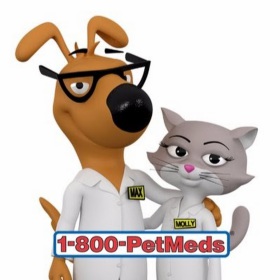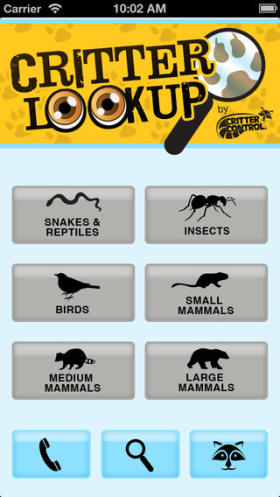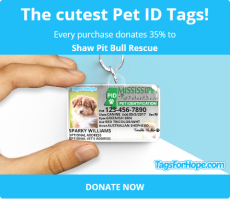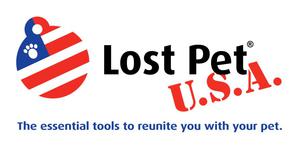Canine Worms
Dogs are victims of several internal parasites frequently referred to as worms. The most common are the roundworms that infest most puppies at some time in their young lives and tapeworms that can
be a big problem when flea infestations are high.
Evidence of roundworms and tapeworms can be seen without the aid of a microscope, but other worms are not so easily diagnosed. Occasionally adult whipworms can be seen in the stool when the
infestation has already caused some debilitation or weight loss in the dog.
Early diagnosis of the presence and species of intestinal parasite is important, for not all worms respond to the same treatment. Therefore, stool samples should be taken to the veterinarian for
microscopic examination if worms are suspected. Many veterinarians include the stool check as part of the annual health examination.
Most worm infestations cause any or all of these symptoms: diarrhea, perhaps with blood in the stool; weight loss; dry hair; general poor appearance; and vomiting, perhaps with worms in the vomitus.
However, some infestations cause few or no symptoms; in fact some worm eggs or larvae can be dormant in the dog's body and activated only in times of stress, or in the case of roundworms, until the
latter stages of pregnancy, when they activate and infest the soon-to-be-born puppies.
Roundworms
Roundworms are active in the intestines of puppies, often causing a pot-bellied appearance and poor growth. The worms may be seen in vomit or stool; a severe infestation can cause death by intestinal
blockage.
This worm can grow to seven inches in length. Females can produce 200 thousand eggs in a day, eggs that are protected by a hard shell and can exist in the soil for years. Dogs become infected by
ingesting worm eggs from contaminated soil. The eggs hatch in the intestine and the resulting larva are carried to the lungs by the bloodstream.
The larva then crawls up the windpipe and gets swallowed, often causing the pup to cough or gag. Once the larvae return to the intestine, they grow into adults.
Roundworms do not typically infest adults. However, as mentioned above, the larvae can encyst in body tissue of adult bitches and activate during the last stages of pregnancy to infest puppies.
Worming the bitch has no effect on the encysted larvae and cannot prevent the worms from infecting the puppies.
Although roundworms can be treated with an over-the-counter wormer found in pet stores, a veterinarian is the best source of information and medication to deal with intestinal parasites. Dewormers
are poisonous to the worms and can make the dog sick, especially if not used in proper dosage.
Hookworms
These are small, thin worms that fasten to the wall of the small intestine and suck blood. Dogs get hookworm if they come in contact with the larvae in contaminated soil. As with roundworms, the
hookworm larvae becomes an adult in the intestine. The pups can contract hookworms in the uterus and the dam can infest the pups through her milk.
A severe hookworm infestation can kill puppies, but chronic hookworm infection is usually not a problem in the older dog. When it does occur, the signs include diarrhea, weight loss, anemia, and
progressive weakness. Diagnosis is made by examining the feces for eggs under a microscope.
Tapeworms
Another small intestine parasite, the tapeworm is transmitted to dogs who ingest fleas or who hunt and eat wildlife infested with tapeworms or fleas. The dog sheds segments of the tapeworm containing
the eggs in its feces. These segments are flat and move about shortly after excretion. They look like grains of rice when dried and can be found either in the dog's stool or stuck to the hair around
his anus. Tapeworms cannot be killed by the typical over-the-counter wormer; see the veterinarian for appropriate treatment.
Whipworms
Adult whipworms look like pieces of thread with one end enlarged. They live in the cecum, the first section of the dog's large intestine. Infestations are usually light, so an examination of feces
may not reveal the presence of eggs. Several checks may be necessary before a definitive diagnosis can be made.
Prevention
Several worms that infect and reinfect dogs can also infect humans, so treatment and eradication of the worms in the environment are important. Remove dog feces from back yards at least weekly, use
appropriate vermicides under veterinary supervision, and have the dog's feces checked frequently in persistent cases. Do not mix wormers and do not use any wormer if your dog is currently taking any
other medication, including heartworm preventative, without consulting the veterinarian.
When walking the dog in a neighborhood or park, remove all feces so that the dog does not contribute to contamination of soil away from home as well.
Dogs that are in generally good condition are not threatened by worm infestations and may not even show symptoms. However, it's a good idea to keep the dog as worm-free as possible so that if disease
or stress do take a toll, you're not fighting worms in a sick pet.













